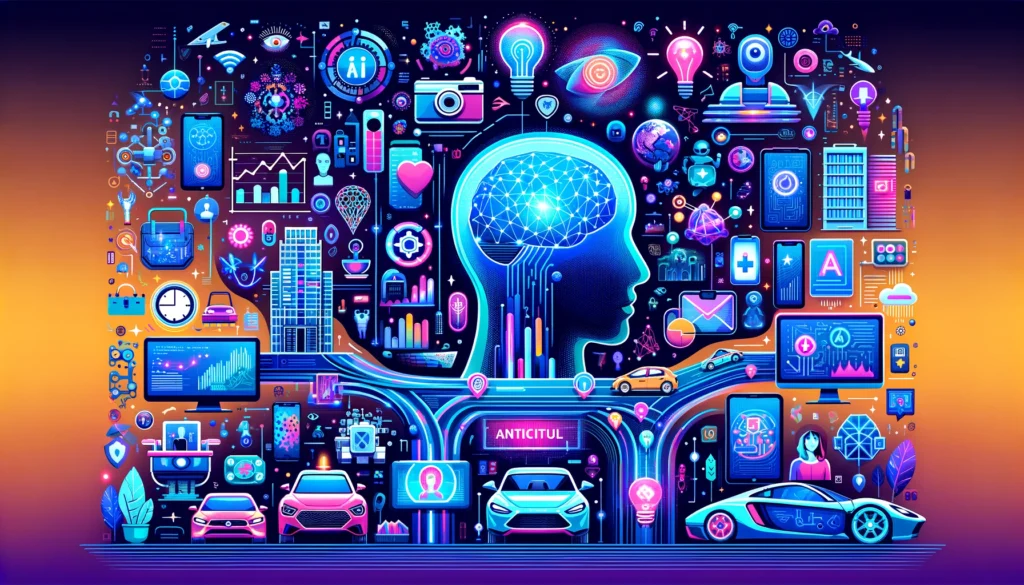Address
W/15, N Main Rd, Imayam Colony, C-Sector, Anna Nagar West Extension, Chennai, Tamil Nadu 600101
Work Hours
Monday to Saturday: 9 AM - 7 PM
Address
W/15, N Main Rd, Imayam Colony, C-Sector, Anna Nagar West Extension, Chennai, Tamil Nadu 600101
Work Hours
Monday to Saturday: 9 AM - 7 PM

Introduction
Artificial Intelligence (AI) is transforming the landscape of digital marketing, making it more efficient, personalized, and data-driven. From automating tasks to providing deep insights, AI is empowering businesses to engage with customers in ways that were previously unimaginable. In this blog, we explore the various ways AI is being utilized in digital marketing and the benefits it brings to businesses of all sizes.

1. Personalization at Scale
One of the most significant contributions of AI to digital marketing is the ability to personalize customer experiences at scale. Through machine learning algorithms, AI can analyze vast amounts of data to understand individual preferences, behaviors, and past interactions with a brand. This enables marketers to deliver highly targeted content, recommendations, and offers that resonate with each customer on a personal level. For instance, e-commerce platforms use AI to recommend products based on user behavior, search history, and purchase patterns, increasing the likelihood of conversion.
2. Improved Customer Segmentation
AI-driven tools allow marketers to segment audiences more effectively than ever before. By analyzing data such as demographics, purchase history, website interactions, and social media behavior, AI can create detailed customer profiles. This enables businesses to create highly targeted marketing campaigns that speak directly to the interests and needs of specific audience segments. For example, a travel agency might use AI to identify potential customers based on their travel destinations, budget, and preferred travel times, allowing them to tailor their marketing messages accordingly.

3. Enhanced Data Analysis and Insights
AI can process and analyze large volumes of data much faster than humans, providing marketers with actionable insights in real-time. This includes analyzing trends, detecting anomalies, and forecasting future behavior. For instance, AI can track which content pieces are performing well, which marketing channels are most effective, and which strategies need adjustment. This data-driven approach helps businesses make informed decisions, optimize campaigns, and allocate resources more efficiently.
4. Chatbots and Customer Service Automation
AI-powered chatbots are revolutionizing customer service by providing instant responses and handling queries 24/7. These chatbots can assist with everything from answering FAQs to guiding customers through the purchase process. For digital marketing, chatbots serve as a powerful tool to nurture leads, qualify prospects, and even conduct initial sales conversations. They also gather valuable data on customer preferences and pain points, which can be used to refine marketing strategies further.
5. Ad Targeting and Optimization
AI algorithms can analyze vast amounts of data to determine the most effective ad targeting strategies. This includes identifying the best ad placements, choosing the right audience segments, and adjusting bidding strategies to maximize ROI. For example, a business might use AI to bid more aggressively on ads that have a higher chance of converting, or to pause campaigns that aren’t performing well. This level of optimization is not only time-saving but also cost-effective, as it ensures that marketing budgets are allocated to the most effective channels.
6. Predictive Analytics
AI’s ability to predict future outcomes is particularly valuable in digital marketing. Predictive analytics can forecast customer behavior, campaign performance, and market trends. For instance, AI can predict which products are likely to sell well during specific seasons or which customers are likely to churn, allowing businesses to take proactive measures. This foresight enables marketers to create targeted campaigns that align with upcoming trends and customer needs.
7. A/B Testing and Experimentation
AI can streamline the process of A/B testing by automatically generating hypotheses, running experiments, and analyzing results. This eliminates the need for manual analysis and speeds up the process of identifying the most effective strategies. For digital marketers, this means quicker experimentation cycles and faster learning curves, enabling continuous improvement of campaigns and marketing strategies.

8. Cost Efficiency and ROI
By automating repetitive tasks and optimizing marketing efforts, AI can significantly reduce costs and improve the return on investment (ROI) for digital marketing campaigns. For instance, AI can automatically adjust bidding strategies, allocate budget to high-performing ads, and manage inventory more efficiently. This ensures that businesses get the most value out of their marketing spend.
Conclusion
AI is not just a trend in digital marketing; it’s a fundamental shift that is redefining how businesses approach customer engagement and marketing strategies. By leveraging AI, businesses can offer more personalized experiences, make data-driven decisions, and stay competitive in an ever-evolving digital landscape. The integration of AI into digital marketing is not just about keeping up with the times—it’s about staying ahead of the curve and delivering exceptional customer experiences.